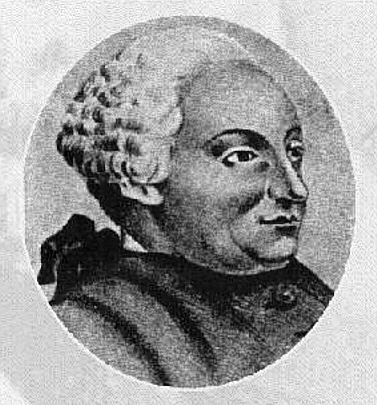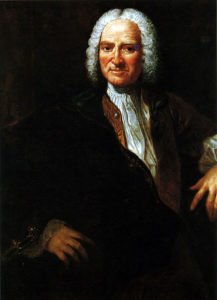“Ignorance and fear: Those are the two pillars of every religion.”
(Paul Henri Dietrich, baron d’Holbach / 1723-1789)
French author and philosopher, Paul Henry Dietrich, Baron d’Holbach were born in 1723 in Edersheim, Germany. He was raised by his rich uncle in Paris, to become a philosopher and a translator. He attended the University of Leyden from 1744 to 1748 or 1749. He enjoyed much of the party life of the university. Heir of two huge fortunes, he became very wealthy fairly young, having inherited from his uncle and stepfather, and remained rich for all of his life.
D’Holbach then started to hold dinner parties at his residence, inviting scientists, philosophers, free thinkers, people who were inclined to share certain radical views on life that would have been chastised in public social circles. The dinner parties were held from the 1750s to the 1780s. Some of the famous guests of these parties were Denis Diderot, Friedrich-Melchior Grimm, Charles-Georges Le Roy, Jean-Franois Marmontel, Augustin Roux, Jean-Franois de Saint-Lambert, Jean-Jacques Rousseau, Jean Le Rond d’Alembert, Edward Gibbon, Horace Walpole, Cesare Beccaria, Benjamin Franklin, David Garrick, Claude-Adrien Helvtius, David Hume, Adam Smith, and Lawrence Stern. His dinner parties were one of the best places for the authors of the “Encyclopdie” to meet without disturbance. He contributed to many articles in the book.
Despite radical opinions, D’Holbach managed to maintain his status in French society during all of his life.
D’Holbach published some of most famous philosophical work of the French period of Enlightenment: Le Christianisme Dvoil (Christianity Unveiled) in which he attacks Christianity and religion in general as opposed to the moral advancement of humanity; Systeme de la nature (System of Nature) in which he describes the universe in terms of philosophical materialism, determinism and especially atheism; and Le Bon-sens (Common Sense), an abridged version of The System of Nature, in which the main principles of System are explained. He however published under the pseudonym Paul-Henri Thiry to preserve his social status.
Some of these greatest philosophical foes were famous figures as Voltaire, Abbey Bergier, and Frederick the Great.
D’Holbach was also famous for his writing on Ethics and his criticism of the monarchy and the state. An advocate of the right to revolution and because he criticized the kings of his time so fiercely, d’Holbach is often regarded as an advocate of revolution.
After 30 years of hosting dinner parties for the most famous scientists and free-thinkers of Europe, D’Holbach died in 1789, the year of the French revolution.







